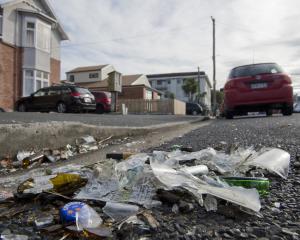
The 12-year-old was swimming at Brighton Beach about 5pm on Monday when he was caught in a rip and signalled for help, Brighton Surf Life Saving Club president Rebecca Aburn said.
A man started to pull the boy back to shore and was joined by two club members, aged 15 and 16, who were at the beach for a training session.
The boy was "very shaken up" and was taken to hospital in an ambulance.
She believed the man and junior members saved the boy’s life.
The incident "raised questions around if there should be patrols on Waitangi Day", she said.
They had decided to run an impromptu training session at the beach so there would be some coverage just in case.
There was no simple solution to the issue, as all patrols were performed by volunteers who had given up their spare time.
Many had already given up their time at Boxing Day and New Year and it was a lot to ask them to give up even more time.
There was also a "huge" need for greater water safety education.
Many people arrived at the beach assuming it would be safe, but Dunedin beaches were "actually not safe at all".
The incidents at the weekend would have been different if those caught in the rips had basic beach safety knowledge, such as how to identify rips and what to do if caught in one.
If caught in a rip, it was essential to relax and let the rip carry you out, Mrs Aburn said.
The 12-year-old had panicked and gone under the waves.
Otago-Southland club development officer Brent Matehaere said it was "really lucky" there were lifeguards looking out for members of the public during the long weekend.
The beaches were routinely patrolled at weekends. However, there was no formal structure for extra patrols.
Any pop-up patrols were performed by volunteers who happened to be at the beach and deemed it necessary.
It was common in Dunedin for club members who were out on the beach to patrol and put up flags, but it was "out of the goodness of their heart".
When going to the beach, members of the public had to be mindful of the conditions and the location of rips, regardless of the situation.
That responsibility lay on beach-goers, not surf life-saving club members.
It "would be great" if it was possible to have more patrols, but regularly changing conditions made it difficult and they could not predict when a lot of people would be at the beach.












